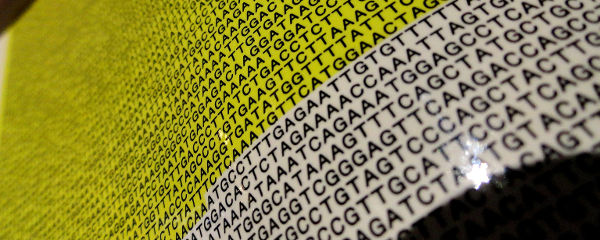What I’ve Learned:
“Tumor suppressor: I’m no hero; I’m just doing my job.”
Fighting evil isn’t all it’s cracked up to be.
First of all, it’s hard. Evil is basically everywhere outside of Walt Disney World, so there’s always another battle on hand. Also, evil is fiendishly creative. Just when you think you have it in check, it’ll pop up behind you, tenting its fingers and snarling, “Excellent.”
But the worst part about fighting evil is that you’ll never be recognized for anything else. That must get old for heroes. Sure, Captain America gets medals for thwarting villains — but maybe he writes poetry, too. Nobody talks about that. What if Superman is a great baker? Or Wonder Woman is a two-handicap golfer? Who would even know?
That’s how it is for so-called tumor suppressor genes. These are genes that have perfectly useful functions in normal cells, merrily toiling along, getting their jobs done. But nobody cares about those jobs — outside geneticists, who nose around everything a cell does. Instead, most people focus on one thing:
If these genes are knocked out of a cell — silenced by mutation or deletion or runaway genetic regulation — then the cell may turn cancerous. With tumor suppressors around, no cancer. Without them — watch out.
The thing is, these genes don’t exist to prevent cancer, exactly; the very name “tumor suppressor” is misleading. In their mild-mannered day jobs, these genes get translated into proteins, and those proteins mostly control whether the cell they live in should grow or not. If it’s not time yet, don’t grow. If the cell is damaged, don’t grow. If it’s badly damaged, try and fix it. And if it can’t be fixed, smash it to bits and storm off in a huff of cytoplasm.
(So basically, tumor suppressors are like eight year old children building a Lego set. “Evil fighters”, my ass.)
The “smash it to bits” part is kind of important. If certain tumor suppressors are working properly — but the rest of the cell isn’t, the bum — they can trigger a process called programmed cell death, also known as apoptosis. This is pretty much what it sounds like — slapping a proverbial “KILL ME!” sign on the wall of the cell, and letting the body rip it limb from limb.
Gruesome, maybe — but better than having a mutated cell grow out of control, and eventually form a tumor. Any good horror movie will tell you: better to off yourself in an emergency than to join the mutant zombie horde. All that shambling around is exhausting, and who wants brain stuck between their teeth?
Anyway, tumor suppressors are very important genes; they’re just not named especially well. Fighting evil — or tumors — gets so much attention that the real everyday jobs these genes naturally do barely gets recognized. Instead, they’re known for a function they serve almost by default.
It’s like labeling a butt plug a “poop suppressor”; technically true, but not really what the thing is actually used for. Which, as any Parisian can tell you, is a giant Christmas tree.
I bet that thing would suppress the shit out of some tumors. Ho ho ho.



